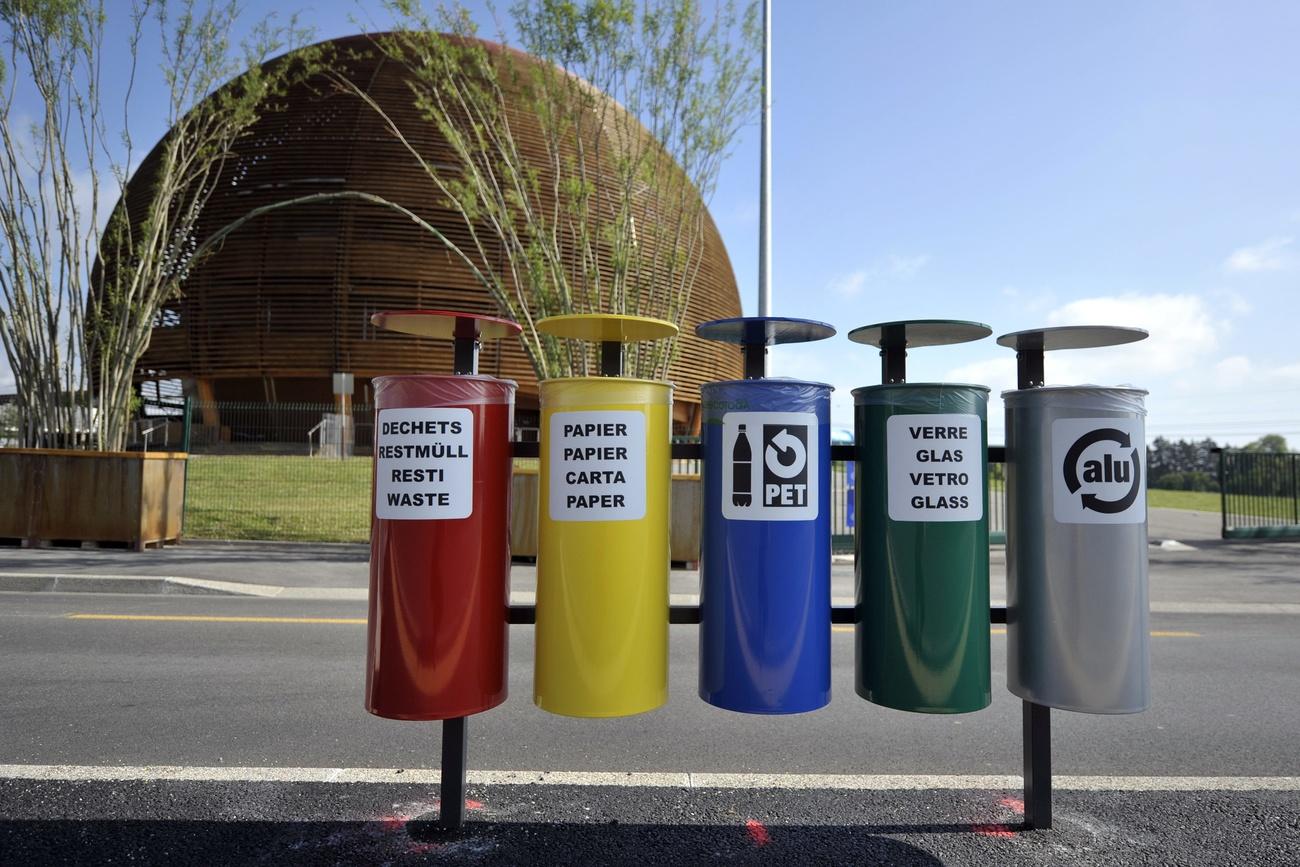
Plastic bottle recycling gets easier in Switzerland

The Swiss PET Recycling association set up 3,000 new collection points last year, taking the total number to over 53,000 across the country.
On average, 82% of PET plastic bottles are recycled in Switzerland – a figure which has been stable for the past ten years.
But the recycling association hopes the rate will slowly rise as it has collaborated with cities, communes and Swiss Federal Railways to increase the number of PET collection points in busy areas to reduce the number of plastic bottles that get thrown away instead of being recycled. The new collection points have been set up in firms, fitness centres, schools and retail outlets.
The association’s medium-term objective was to open 4,000 new collection points, thus another 1,000 must be installed, PET Recycling’s communication officer Stefanie Brauchli told Keystone-SDA on Tuesday.
The first plastic bottles made completely out of recycled PET plastic (R-PET) appeared in Switzerland last year. At the end of the year, 40% of plastic bottles were made of recycled PET, making Switzerland a world leader in the use of R-PET, followed by Germany. From 2025, all PET bottles in the European Union must be manufactured using a minimum of 25% of recycled PET.
While the PET plastic recycling rate in Switzerland is impressive, it lags behind that of glass, which currently stands at 94%. In 2018, 289,231 tonnes of glass were recycled in Switzerland, making it one of the leading countries for glass recycling.

More
Switzerland has a problem with plastic recycling

In compliance with the JTI standards
More: SWI swissinfo.ch certified by the Journalism Trust Initiative






























You can find an overview of ongoing debates with our journalists here . Please join us!
If you want to start a conversation about a topic raised in this article or want to report factual errors, email us at english@swissinfo.ch.